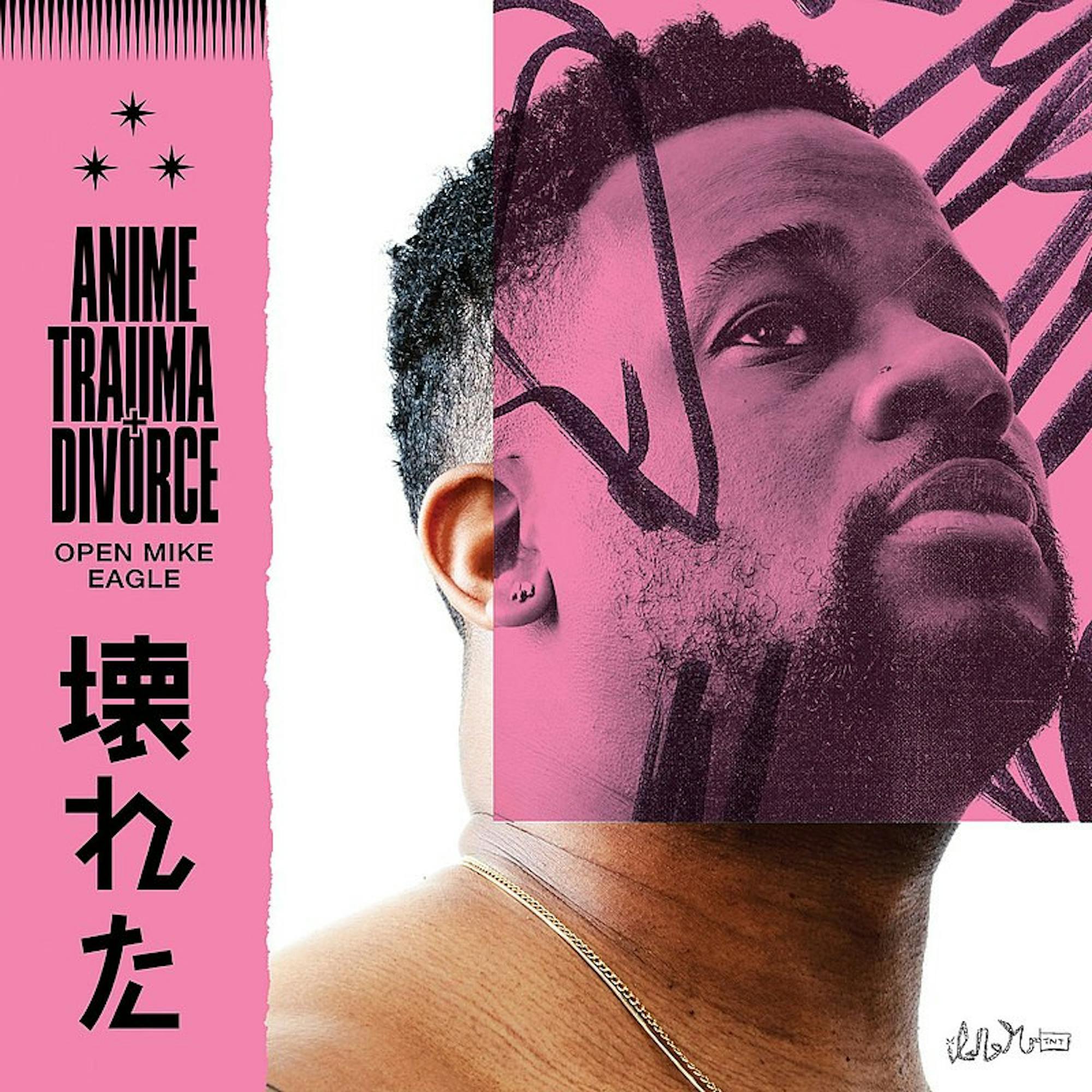Content warning: This article discusses trauma.
Open Mike Eagle is a rapper of tragicomedy. Indeed, he has an album called “Dark Comedy” (2014). The rapper is most distinguished for his lyrical wit, his keen eye for political idiocy and his personal confessions — though the latter is usually done in an ironic tone.
In his song “Dark Comedy Late Night Show” (2015), which was released in an extended play after “Dark Comedy,”Eagle mocks the war hawk Congress and the national security regime, among many others, while bemoaning the simultaneous exploitations of racial capitalism (“And I see the Super Bowl of the Future: / The Ferguson Blacks vs. Missouri State Troopers”). The title, “Dive Bar Support Group” (2016) is literally an oxymoron since support groups are supposed to help people become sober; the mellow hook speaks from the voice of a paralyzed group of people who are at the dive bar and can’t put up with each other, but want to avoid going home.
Open Mike Eagle’s latest album, “Anime, Trauma and Divorce” (2020), as its title suggests, is his most vulnerable one yet. Each of the three elements occupies a unique place in the album and culminates in an admirably personal tale of loss, confusion and anguish.
Part of the album’s shortcoming lies in the relative monotony. The album is markedly slower than Eagle’s usual work, both in terms of the speed of his rapping and the overly melodramatic melodies. The fast-pace and strong percussion in “Ziggy Starfish” and “Dark Comedy Late Show” bring out the best of Eagle’s quick-fire wit and allows his self-deprecating jokes to land at the right places without feeling overdone.
This technique doesn’t work as well when the song is slow and the lyrics only ostensibly confessional. The problem is the most present in the opening track “Death Parade” and the lead single “Bucciarati." When Eagle does get confessional, for example in “Bucciarati” when he says, “Part of me struck an original trauma / Part of me wears an invisible armor / Part of me knows I have all that I need / Part of me hurts when the other succeed,” we get none of his usual wit.
“The Black Mirror Episode,” the track most explicitly about divorce and described by critics as “nightmarish,” discusses an unnamed “Black Mirror” (2011–) episode that ruined his marriage … and that’s about it. We're left with little idea what episode it was or how it sabotaged the bond between the couple.
The more interesting tracks in this album include “Wtf is Self Care.” The approximately two-minute song mocks the notion of self-care but reminds the audience of his need for healing; its shortness and bizarre tone paradoxically brings out the lines, “Yeah, it's like journaling, writing s--- that feels nurturing / I tried it out and found pain I was circling / And started crying so hard I was gurgling” very well. He picks up the speed in “The Edge of New Clothes,” which has a smooth flow and Eagle’s usual all-encompassing lyrical depth, though the track is regrettably short. Eagle’s son, Lil A$e, also delivers a memorable performance in the last track, “Fifteen Twenty Feet Ocean Nah.”
The puzzling thing about the album is one can feel Open Mike Eagle’s genuineness without learning much about either his anime, trauma or divorce. Though he compares himself to a “JoeStar” and discusses other anime concepts, even listeners familiar with “Jojo’s Bizarre Adventure” (2012–) or “Neon Genesis Evangelion”(1995–96) cannot figure out what either anime series mean to him other than surface-level relatability. Divorce we learn of little, perhaps for good reason.
“Anime, Trauma and Divorce” falls short of Open Mike Eagle’s trademark wit, dark humor and knack for social critique; some portions of it are overly melodramatic, with unoriginal verses. Despite these deficiencies, Eagle remains one of the more interesting rappers to listen to for his general lyrical complexity and musical excellence.






